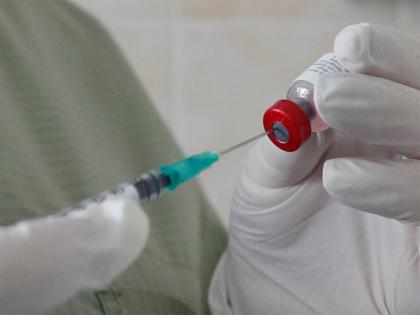Germany detects poliovirus in wastewater sample in Hamburg
By ANI | Updated: November 14, 2025 06:20 IST2025-11-14T06:18:10+5:302025-11-14T06:20:05+5:30
Berlin [Germany], November 14 : Germany reported the detection of wild poliovirus type 1 (WPV1) in a wastewater sample ...

Germany detects poliovirus in wastewater sample in Hamburg
Berlin [Germany], November 14 : Germany reported the detection of wild poliovirus type 1 (WPV1) in a wastewater sample in Hamburg, a statement by the European Centre for Disease Prevention and Control, an agency of the European Union, said.
This follows previous reports about circulating vaccine-derived poliovirus type 2 (cVDPV2) in wastewater samples from several locations in Germany since the end of 2024, which comes as a setback when countries are vying to eradicate the virus.
The detections of cVDPV2 and WPV1 are unrelated, but both polioviruses can cause polio in people who are not vaccinated or not fully vaccinated, as per Thursday's statement.
The genome sequence of the isolate shows a very strong similarity to a genetic cluster in Afghanistan [REF]. WPV1 currently only circulates in Afghanistan and Pakistan, but in recent years it has also been detected outside these two countries: in environmental samples in Iran (2019), and in confirmed cases in Malawi (2021) and Mozambique (2022).
The detection of WPV1 in a wastewater sample in Germany is unusual, but not unexpected. The risk to the European population from this WPV1 detection in wastewater in Germany is considered very low due to generally high vaccination rates across the region, the statement says.
Given that polio has not been eradicated globally, the risk of the virus being reintroduced in Europe remains as long as there are people who are not fully vaccinated.
All EU/EEA countries have polio vaccination programmes, and all use inactivated polio vaccines (IPV). Most EU/EEA countries report vaccination coverage above 90%. High vaccination coverage is needed to continue to protect people against polio.
ECDC has recommendations for public health authorities after the previous detections of polioviruses in wastewater.
Ensure the timely administration of polio-containing vaccines included in routine vaccination programmes in all EU/EEA countries, especially for young children, in order to maintain at least 90% coverage across all levels of society;
Identify and reach out to people with incomplete or unknown vaccination status;
Develop tailored, context-specific, culturally sensitive interventions to increase vaccination uptake, and conduct risk communication activities to highlight the importance of ensuring timely routine vaccination;
Alert clinicians, in particular paediatricians and neurologists, to remain aware of acute flaccid paralysis (AFP) syndromes and about AFP cases potentially caused by poliovirus, and remind them that AFP surveillance is based on polio virus identification in faecal samples and that negative test results of samples from other bodily substances do not exclude polio virus infection;
Strengthen environmental surveillance to rapidly detect introductions or circulation of the virus.
ECDC will continue to work closely with national and international partners to monitor the situation, provide guidance, and support efforts to maintain high vaccination levels, the statement added.
Disclaimer: This post has been auto-published from an agency feed without any modifications to the text and has not been reviewed by an editor
Open in app